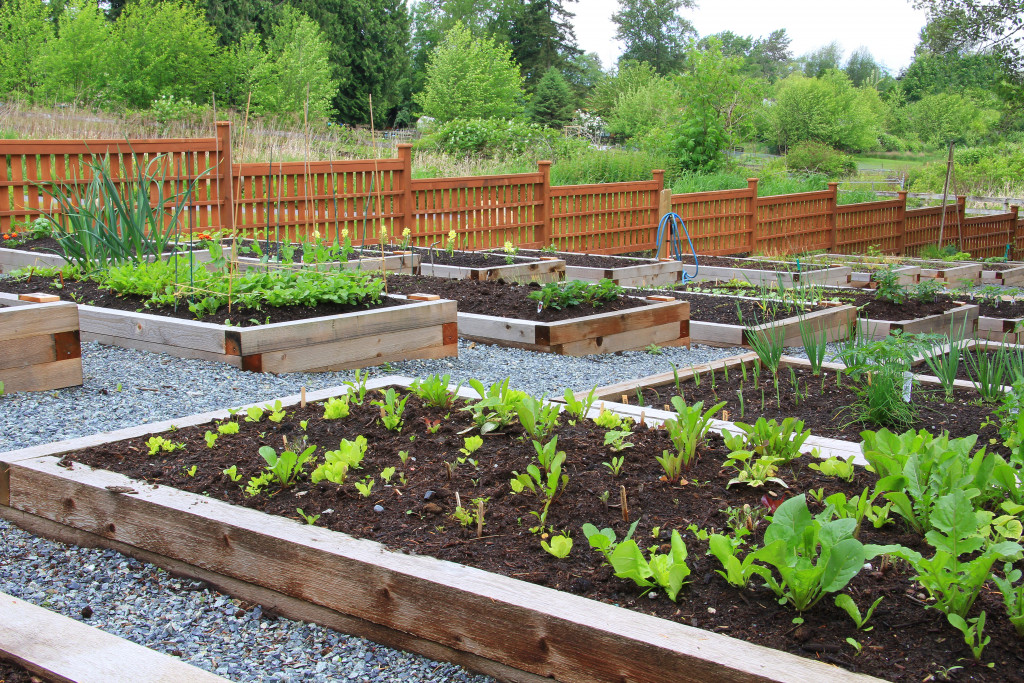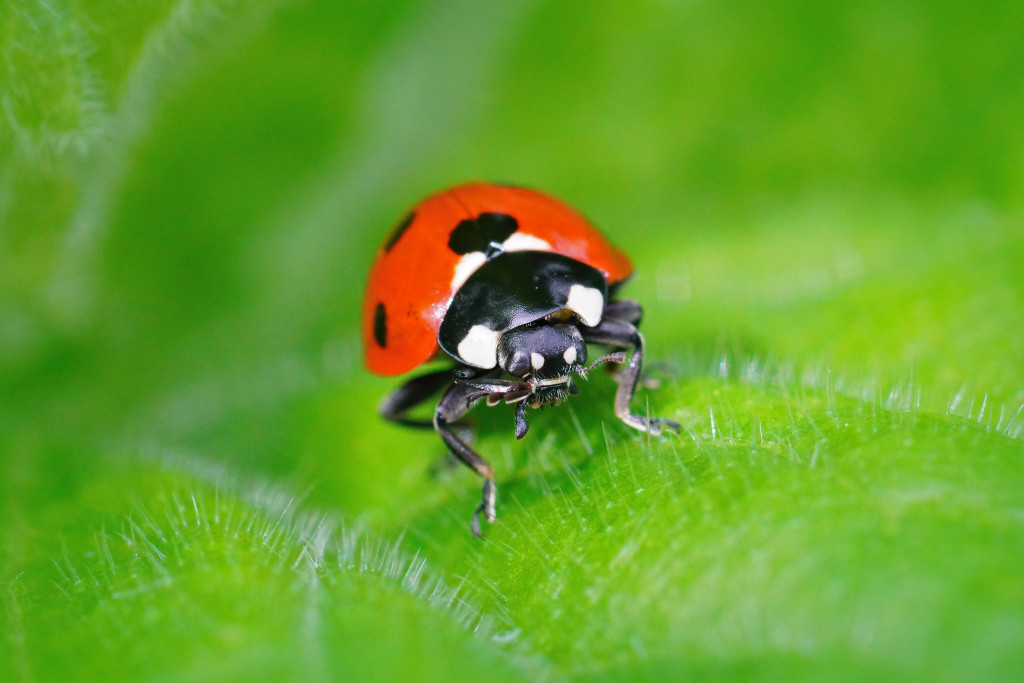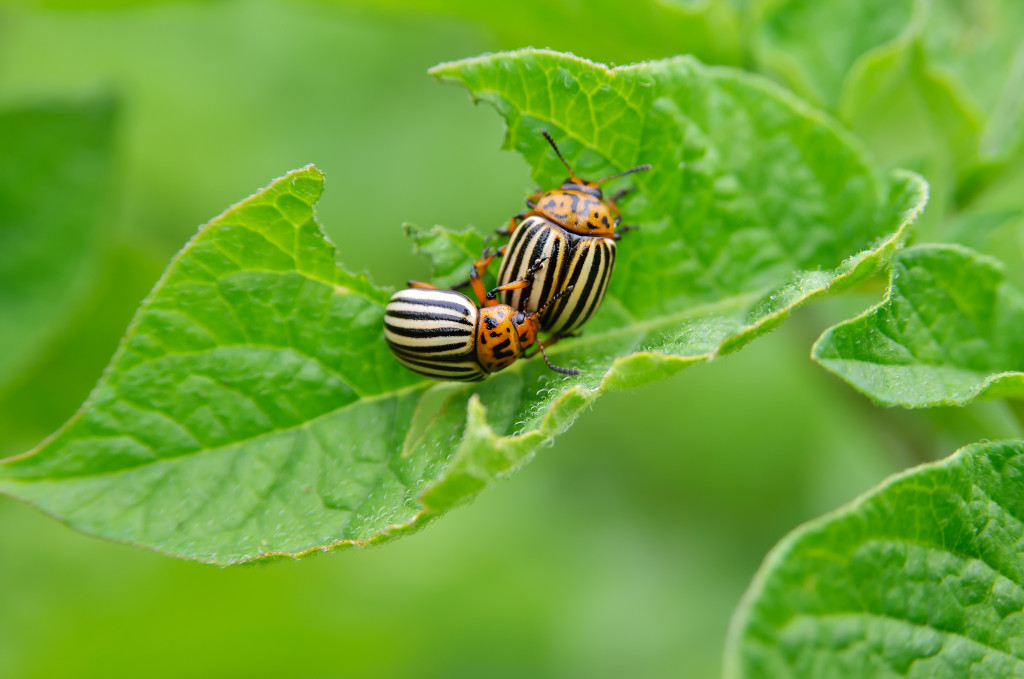- Keeping the garden clean eliminates pests’ hiding spots and prevents their attraction to rotting plants and weeds.
- Raised beds create a barrier against pests and allow better control over soil conditions, further deterring pests.
- Natural predators such as ladybugs, praying mantises, lacewings, and bats can help control different pests.
- Organic treatments, including garlic spray and neem oil, can safely and effectively eliminate common garden pests.
- Companion planting leverages the natural pest-repelling properties of certain plants, creating a symbiotic and pest-resistant garden environment.
There’s nothing quite like watching your beloved garden come to life with vibrant plants, colorful flowers, and fresh herbs. But when pests start ruining your hard work, it can be frustrating and disheartening. Whether you’re dealing with aphids, slugs, snails, or other common garden pests, there are several effective ways to protect your plants from their pesky presence. This post will cover some of the best ways to protect your plants from pests, so you can keep your garden thriving all season long.
Keep Your Garden Clean:
Keeping your garden clean is one of the first steps to protect your plants from pests. Remove any dead leaves, plants, or debris from your garden bed. Pests often make a home in these areas, so keeping them clean will eliminate their hiding spots.
Additionally, dispose of garden waste properly so it doesn’t attract pests. Many pests are attracted to rotting fruits and vegetables, so make sure you put your food scraps in the trash when finished. And keep your garden free of weeds, as many pests love to hide out in them.

Use Raised Beds:
Raised garden beds are an excellent way to protect your plants from pests. Having raised beds will create a barrier between your soil and the ground, which keeps pests like slugs and snails from getting to your plants. Having raised beds will also make it easier for you to control the soil environment, as you can monitor what type of material is in your beds.
You can also add barriers around the raised beds to help deter pests. This can include planting strong-smelling herbs like garlic, chives, or rosemary near your plants and ensuring plenty of space between plants for air circulation.
Use Natural Predators:
If you’re looking for a natural way to eliminate pests, consider using natural predators. Different pests have different predators, and introducing the right kind of predator to your garden can help keep pest populations down. Here are some common garden predators that you can introduce to your garden:

Ladybugs
Ladybugs eat aphids, mealybugs, and scale insects. They can be found easily in garden centers or online.
Praying Mantis
Consider introducing praying mantises into your garden to control caterpillars, aphids, and other flying insects. They are voracious predators and can help keep pests away from your plants.
Lacewings
You can also introduce lacewings into your garden to help control aphids, mealybugs, and other small insects. They are gentle predators that won’t harm your plants.
Bats
Bats are excellent predators of moths and other flying insects, so they can help keep your garden free of pests. You can install bat boxes in your garden to attract them. But keep in mind that bats are protected, so make sure you check with your local laws before trying this method.
Organic Treatments:
Many organic treatments are effective in getting rid of common garden pests. For example, garlic spray can deter pests like slugs and snails or neem oil to eliminate aphids and spider mites. You can also try mixing water and dish soap to spray on pests like aphids, thrips, mites, or caterpillars. These treatments are safe for your plants and the environment, making them an excellent choice for eco-conscious gardeners.
Just test any homemade treatments on a small area of your plants before applying them to the entire plant. And make sure you read the instructions carefully and follow all safety measures when using commercial products. You don’t want to damage your plants or put yourself at risk.
Companion Planting:
Companion planting involves planting different plants next to each other to benefit each other. Some plants have natural pest-repellent properties, so by planting them next to your vulnerable plants, you can deter pests. For example, marigolds are a great companion to tomatoes because they repel pests like nematodes and aphids. You can also consider planting basil next to your vegetables, as it deters pests like flies and mosquitoes.
Pests can wreak havoc on your beautiful garden, but several effective ways exist to keep them at bay. Different options will work for every gardener, whether you prefer natural methods or organic treatments. By keeping your garden clean, using natural predators, organic treatments, protective barriers, and companion planting, you can protect your plants from pests all season long. With these tips, you can enjoy a thriving garden free of pesky critters.
